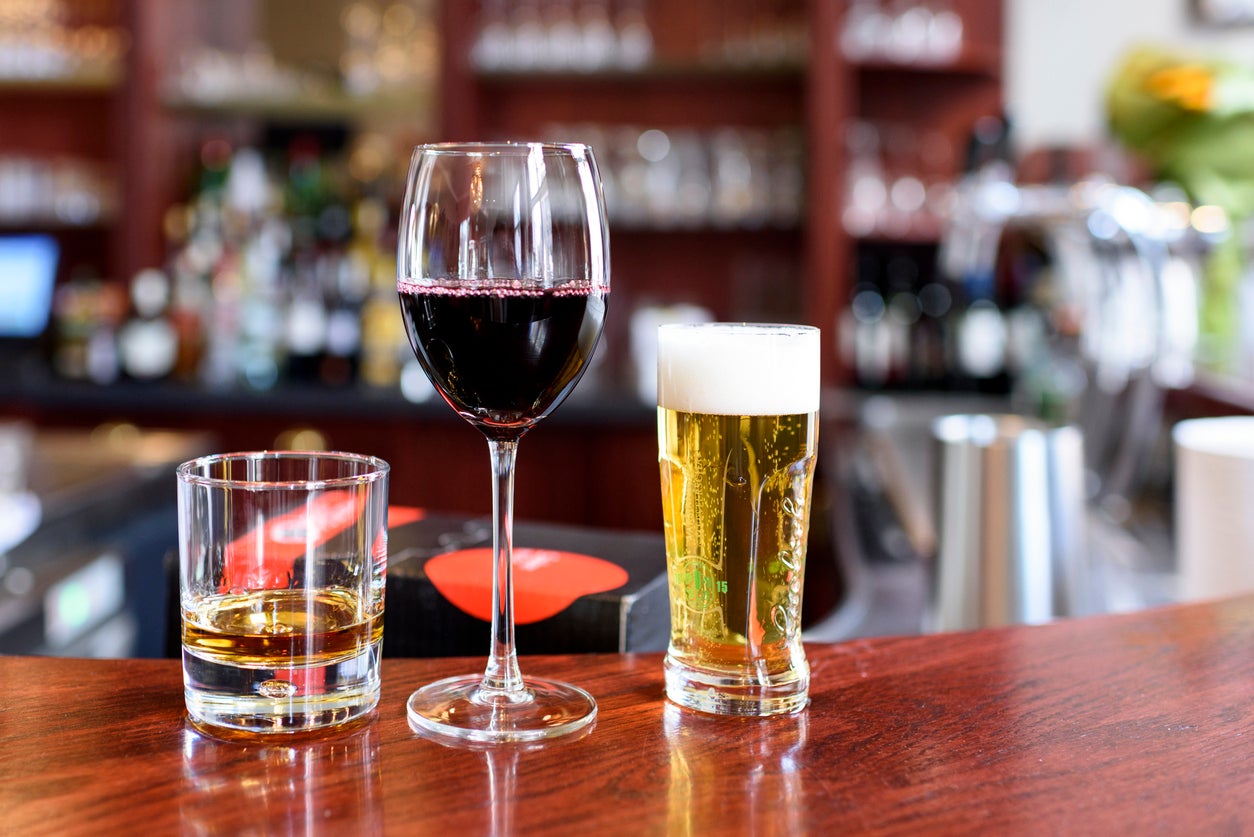Low strength beer and wine could increase alcohol consumption, claim experts
Low strength alcoholic beverages are marketed as ‘lunchtime’ drinks

The way that low strength beer and wine is marketed could be increasing overall alcohol consumption in the UK, experts have claimed.
Drinks with a lower alcohol content are promoted as being suitable alternatives to stronger beverages.
However, the marketing strategies behind these drinks are leading people to consume them in addition to rather than as a substitute to stronger tipples, which could be very damaging to their overall health in the long run.
Researchers from the University of Cambridge carried out a study published in BMC Public Health to determine how low strength beer and wine is advertised to the general public.
They compared the marketing messages of low and regular strength beer and wines from Tesco, ASDA, Sainsbury’s and Morrisons by analysing the way the products were pictured and described.
They pinpointed four key aspects of each retailer’s marketing strategy: special occasions on which to consume the drinks, health-related correlations, the alcohol content and the taste.
They discovered that low strength beer and wines are frequently labelled as being ideal choices for lunchtime drinks, in addition to being suitable for events such as barbecues and sporting fixtures.
Furthermore, low strength alcoholic drinks are often presented with images of health such as photos of fruit.
Increasing the availability of low strength beer and wine was originally intended as a way of decreasing the amount of alcohol that people in the UK consume.
However, the researchers believe that the way in which the products are retailed is drastically boosting overall alcohol consumption.
“Low/er strength wines and beers appear to be marketed not as substitutes for higher strength products but as ones that can be consumed on additional occasions with an added implication of healthiness,” they stated.
“The present findings cast doubt on the industry contention that the development, promotion and marketing of low/er strength alcohol products may reduce alcohol consumption and associated harms.
“Rather, the present findings add to an existing literature that highlights how measures intended to benefit public health (in this case wider availability of low/er strength alcohol products) may benefit industry to the detriment of the health of the public.”
In March 2012, the UK Government Alcohol Strategy pledged to remove one billion units of alcohol from the market by 2015 by increasing the number of low strength alcoholic drinks on offer.
According to the Office for National Statistics, 7,327 alcohol-specific deaths were recorded in the UK in 2016.
In 2016 it was estimated by the Institute of Alcohol Studies that alcohol harm costs society around £21 billion on an annual basis, including a cost of £3.5 billion to the NHS.
The researchers assessed 86 web pages marketing 41 lower strength wines and 48 web pages marketing 16 lower strength beers for the study.
Subscribe to Independent Premium to bookmark this article
Want to bookmark your favourite articles and stories to read or reference later? Start your Independent Premium subscription today.

Join our commenting forum
Join thought-provoking conversations, follow other Independent readers and see their replies